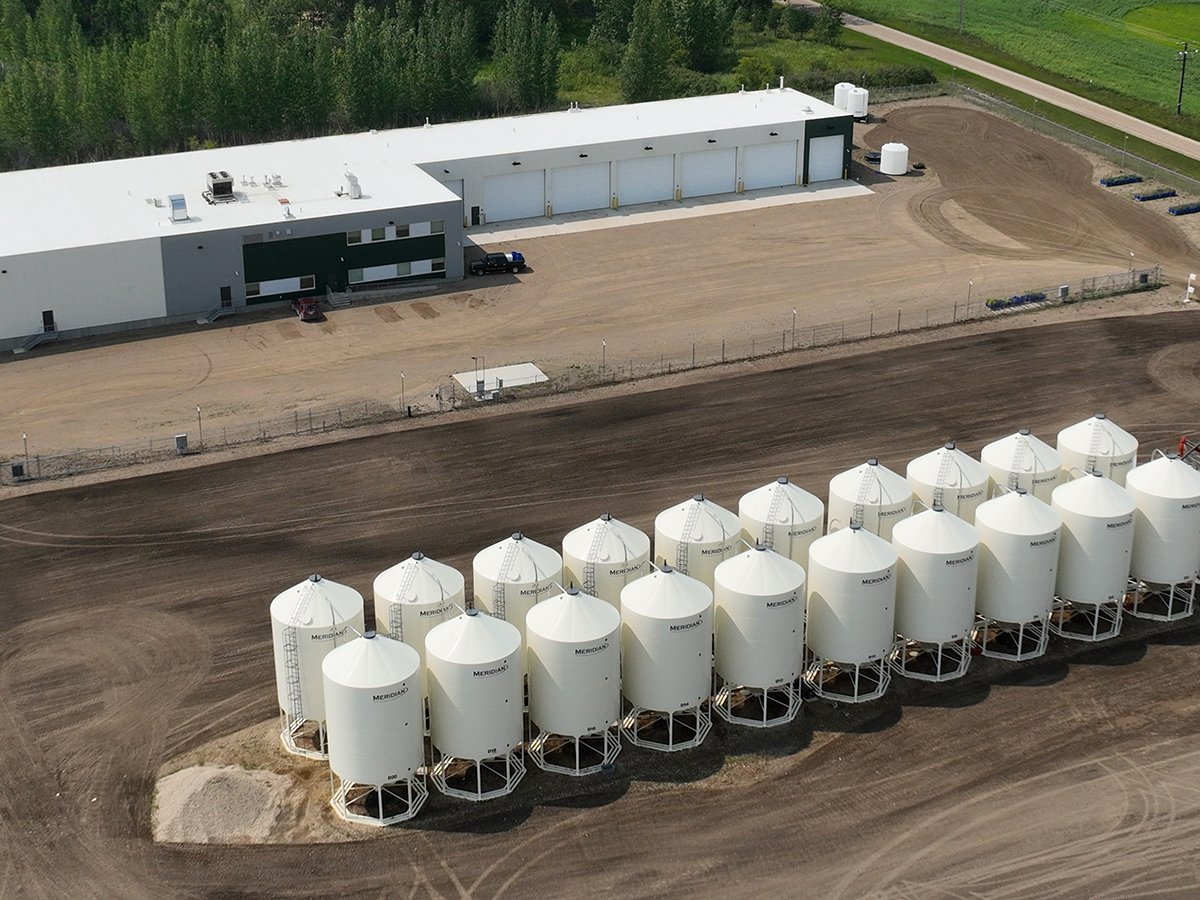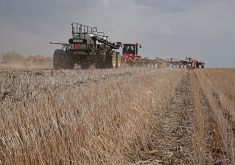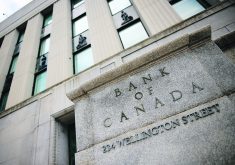A market analyst advises the sector, including fertilizer, to watch for key indicators and then keep it all in perspective
A leading Canadian business analyst says several key market indicators point to a recession in 2024.
Catherine Murray’s main message to the Fertilizer Canada delegates at their annual meeting held in Vancouver on Aug. 16 is that “a recession is coming in 2024.”
Murray hosts The News Forum and is best known for her work as the host of BNN Bloomberg’s The Close and Market Call Tonight.
“The fertilizer market is impacted by a range of factors as a globally traded commodity,” said Fertilizer Canada president Karen Proud.
Read Also

Saskatchewan firm aims to fix soil with compost pellets
In his business, Humaterra, Leon Pratchler is helping farmers maximize yields in the weakest areas of their fields through the use of a compost pellet.
“While no one has a crystal ball, listening to (Murray), who has a pulse on current economic events, helps the fertilizer and agriculture industry plan and adapt to challenges and opportunities we face heading into 2024,” said Proud.
The markets hold key indicators to watch when making decisions for your business, said Murray.
“With the market’s recent developing events, when taken together and connecting the dots, you can really plan thoughtfully and hopefully accurately.”
Murray said what’s different now than from 20 years ago has been the pandemic and central banks around the world influencing the markets.
“Those are two aspects that we really haven’t had to deal with. And that’s why making sense is so difficult in terms of all the conflicting data points instead of facts.”
“The consensus view is that a recession is coming in 2024. It was only three months ago we were going to see rate cuts in 2023, but we’ve continued to have some stronger economic data on some fronts, which are holding steady, so now it’s getting pushed into 2024,” she said. “Why are they saying this?
“We’ve never (seen) rates raised more than 500 basis points within the year. Maybe in 1981 we did, but that was going from 12 to 17 percent, not starting at zero.”
Murray said the markets have also shown an inverted yield curve for more than 15 months. An inverted yield curve, which shows that long-term interest rates are less than short-term interest rates, has proven in the past to be a reliable indicator of a recession.
While the Wall Street Journal ran a story two months ago on its front page that said: “Where’s this illusive recession?” Murray said predicting it is a little different this time “because of the pandemic, and because of the money that’s been moved into and flooded the market.
“The issue, of course, is timing. The pandemic has elongated that because of quantitative easing and money that has been put into the system. It’s taken longer for the negative effects to come about,” she said.
“The Bank of Canada is in a very difficult position right now,” said Murray. “I think they recognize the federal government has unlimited spending in the last budget and has no plan to balance the budget. They’re dealing with that (spending) which is fuelling inflation.”
Long-time Fertilizer Canada member Kelvin Feist said conference delegates want to learn how the stock market is connected to their businesses and agrees with Murray’s assessment.
“The (BOC) is trying to bring down inflation because they blew it up over COVID. Now they are trying to fix what they made a major error on,” said Feist, who is managing director of sales for Sackett Waconia.
Yet Feist is optimistic.
“Ag chugged all the way through that. Everybody was so worried about a big crash and we didn’t see that through COVID. They were very good years for the farmer. Anybody in the grain space, fertilizer, chemicals, the whole chain is driven by farmgate spending.”
Murray also emphasized that geopolitical events such as the Ukraine war, the upcoming U.S. election and China’s protectionist policies and its economy are other important market indicators.
“If we go back to the financial crisis in 2009, China really came in and saved the day in terms of the stimulus they put into the market to help the global growth perspective. But right now, their economy continues to shrink. Their economic data, even over the past week, is much worse than expected. But it really hasn’t thrown everything else off,” explained Murray.
Feist also believed instability in the world is keeping the agriculture sector strong.
“I think the number is somewhere around 30 percent of fertilizer and grain exports come out of Russia and Ukraine. If that conflict swings one way or another, it dramatically changes the demand for grain and the price of a commodity. If the world becomes more stable with less conflict, the fear of lack of supply will likely pressure commodity prices downward. Inflation and wars both typically drive prices way up on corn, wheat, sunflower, everything,” he said.
As for the impending recession, Feist believed the ag market has counter-cyclical qualities.
“The theory is if the world goes into a recession, agriculture becomes more important because people go back to their grassroots, which is feeding themselves and growing crops.”
The author, Tracey Feist, is married to Kelvin Feist, one of the sources quoted in this story.















